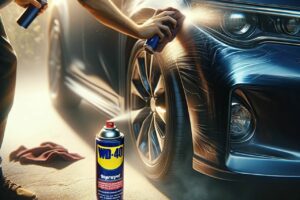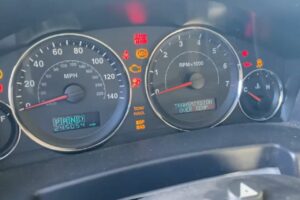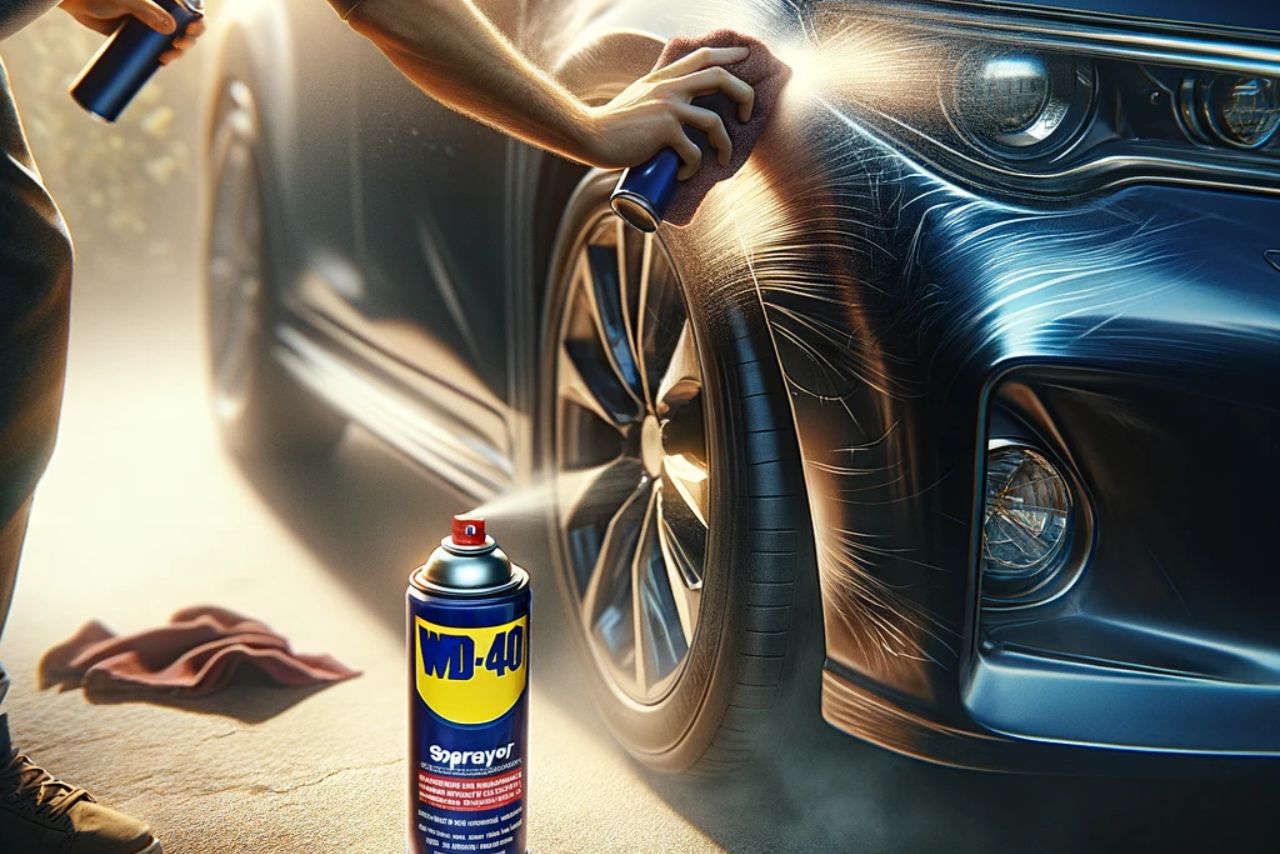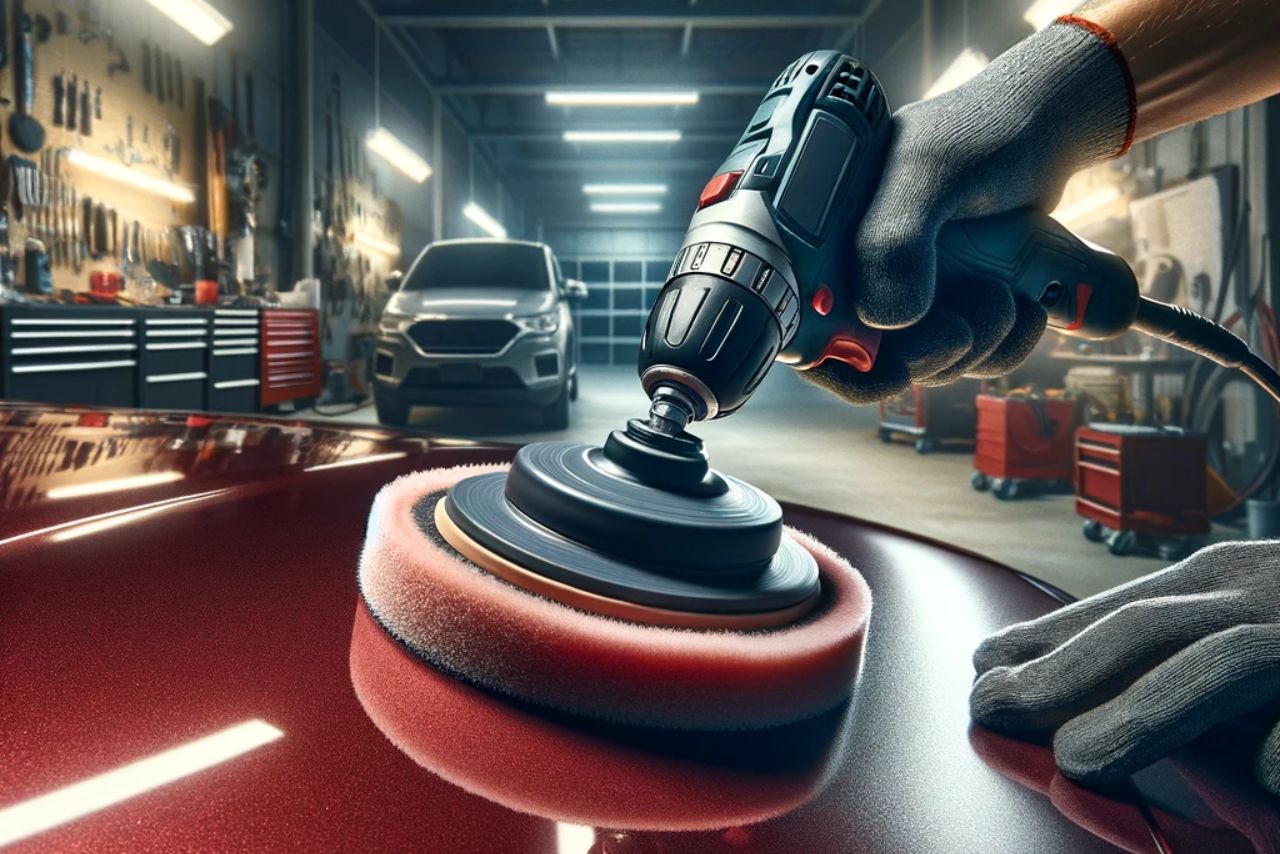If you own a Peugeot 208, it is essential to keep up with its regular servicing schedule to ensure it runs smoothly and lasts for years to come.
Knowing when to schedule maintenance can be confusing, but this article will provide you with all the information you need to keep your car in top shape.
From cambelt and water pump changes to brake servicing and engine oil changes, we’ve got you covered.
The Peugeot 208 is a popular car model that requires regular maintenance to keep it running efficiently.
With proper care, your Peugeot 208 can last for many years.
In this article, we will guide you through the recommended service intervals for Peugeot 208 Service Schedule, as well as provide expert recommendations on other essential maintenance tasks.
So, whether you’re a new owner of a Peugeot 208 or have been driving one for years, read on to discover the best ways to keep your car running smoothly.
Table of contents
What Is Service Interval for Peugeot 208?
So, how often does the Peugeot 208 need servicing?
Well, the recommended service interval for this model is a minor service every 12,500 miles or 1 year, and a major service every 25,000 miles or 2 years. It’s important to keep up with regular maintenance to prevent costly repairs down the line.
When it comes to maintenance costs, it’s always a good idea to shop around and compare prices from different mechanics.
If you’re handy with cars, you may also consider DIY servicing to save some money.
Some common issues with the Peugeot 208 include clutch problems, suspension issues, and fuel injector failures.
If you experience any of these issues, it’s best to take your car to a recommended mechanic for repairs.
Are Peugeot 208 cheap to repair?
| Mileage or Months | Service Type | Recommended Interval |
|---|---|---|
| 12,500 or 1 year | Interim service | Every 12,500 miles or 1 year, whichever comes first |
| 25,000 or 2 years | Full service | Every 25,000 miles or 2 years, whichever comes first |
| 37,500 or 3 years | Interim service | Every 37,500 miles or 3 years, whichever comes first |
| 50,000 or 4 years | Full service | Every 50,000 miles or 4 years, whichever comes first |
| 62,500 or 5 years | Interim service | Every 62,500 miles or 5 years, whichever comes first |
| 75,000 or 6 years | Full service | Every 75,000 miles or 6 years, whichever comes first |
You’ll be happy to know that repairing a Peugeot 208 won’t break the bank!
The cost starts at £115, but factors for repairing a Peugeot 208 are relatively low, especially when compared to other car models.
However, even with its low repair costs, it’s important to note that the cost may still vary depending on the extent of the damage and the age of the car.
If you’re looking to save even more money, you can opt for DIY repair. There are many online resources that can guide you through simple repairs, such as replacing brake pads or changing the engine oil.
Alternatively, you can also consider local mechanic options that can offer affordable repair services.
It’s important to note that if your Peugeot 208 is still under manufacturer warranty, you may be covered for certain repairs.
Additionally, it’s always a good idea to check with your insurance provider to see if they offer coverage for car repairs.
Cambelt and Water Pump Change:

To ensure the longevity of your car’s engine, it’s recommended to have the cambelt and water pump changed at the recommended intervals based on the age and model of your vehicle.
The cambelt and water pump are both crucial components of the engine, and if they fail, it can cause severe damage to the engine, resulting in costly repairs.
Here are some things you should know about cambelt and water pump changes:
-
Cost estimate: The cost of a cambelt and water pump change varies depending on the model of your car and the mechanic you choose. It’s best to get quotes from different mechanics and compare them to find the best deal.
-
DIY tips: While it’s possible to change the cambelt and water pump yourself, it’s a complicated and time-consuming process. It’s recommended to have a professional mechanic do the job to ensure it’s done correctly.
-
Common issues: Over time, the cambelt and water pump can wear out, causing them to fail. Symptoms of a failing cambelt or water pump include engine misfires, rough idling, and coolant leaks.
-
Brand comparison: When it comes to cambelts and water pumps, it’s essential to use high-quality brands such as Gates, INA, or SKF. These brands are known for their durability and can last longer than cheaper brands.
-
Mechanic recommendation: It’s recommended to have a professional mechanic change your cambelt and water pump. They have the experience and knowledge to do the job correctly, ensuring the longevity of your engine.
Engine Service:

When it comes to maintaining your car’s engine, it’s important to know that regular servicing is key. This includes an engine service, which should be conducted at least every 12,500 miles or once a year.
During an engine service, your mechanic will perform an oil and filter change, as well as replace any necessary spark plugs, air filters, and fuel filters.
It’s important to use high-quality parts and recommended engine oil, such as TOTAL Quartz Ineo 5W-30, to ensure your engine runs smoothly and efficiently.
Regular engine maintenance not only helps to prevent breakdowns but can also improve fuel efficiency and prolong the lifespan of your car.
Be sure to keep up with your car’s service schedule and take note of any warning signs, such as unusual noises or reduced performance.
By regularly maintaining your engine, you can ensure a safer and more reliable driving experience.
Brake Servicing:
Maintaining your brakes is crucial for ensuring your safety on the road, and understanding the lifespan of your brake pads and discs can help you plan for necessary repairs.
Brake maintenance involves regular inspections of your brake system, including checking the thickness of your brake pads and the wear of your brake discs. It’s recommended to have your brake system inspected at least once a year.
Brake pad replacement is necessary when the pads have worn down to a thickness of 3mm or less. On average, brake pads last between 30,000-40,000 miles.
Brake discs, on the other hand, have a longer lifespan and can last between 60,000-70,000 miles. It’s essential to have your brake fluid changed every two years to prevent corrosion and ensure proper braking performance.
A well-maintained brake system will keep you and your passengers safe on the road.
Suspension and Steering:

Your driving experience can be greatly affected by the condition of your Peugeot’s suspension and steering.
Common issues with the suspension include worn shocks/struts, failed strut top mounts, and deteriorated lower control arm bushings. These issues can lead to a bumpy ride, poor handling, and even unsafe driving conditions.
To maintain a smooth ride and ensure your safety, it’s recommended to have your suspension checked by a professional every 60,000 miles.
In addition to regular maintenance, there are aftermarket upgrades available to improve your Peugeot’s handling performance.
Upgraded shocks/struts and sway bars can greatly improve your car’s handling and reduce body roll during turns.
Steering upgrades, such as performance steering racks and tie rod ends, can also improve handling and responsiveness.
However, it’s important to note that these upgrades may affect the ride comfort and noise level of your car. Be sure to consult with a professional before making any upgrades to your suspension or steering.
Gearbox oil:
Upgrading your Peugeot’s gearbox oil can prevent costly repairs and improve the overall performance of your vehicle.
Gearbox maintenance is an essential part of car servicing, and neglecting it can lead to expensive repairs.
The oil change frequency for a manual or semi-automatic gearbox is around 70,000 miles, while an automatic gearbox requires an oil change every 30,000-50,000 miles. However, if you frequently drive in harsh conditions, you may need to change your gearbox oil more frequently.
- To ensure your gearbox lasts longer, it’s essential to follow some transmission care tips.
- Firstly, avoid sudden acceleration or deceleration, as this puts excessive pressure on the gearbox.
- Secondly, ensure your gearbox is adequately lubricated by using the best gearbox oil brands, such as TOTAL Quartz Ineo MC3 5W-30 or Mobil 1 75W-90.
- Using high-quality oil can help reduce gearbox repair costs and improve the vehicle’s performance.
- Additionally, it’s crucial to have your gearbox oil checked regularly by a qualified mechanic, especially if you notice any unusual noises or vibrations while driving.
| Gearbox Oil Brands | Oil Change Frequency |
|---|---|
| TOTAL Quartz Ineo MC3 5W-30 | 70,000 miles |
| Mobil 1 75W-90 | 30,000-50,000 miles |
| Fuchs TITAN SINTOFLUID FE 75W | 60,000 miles |
| Castrol Syntrans Multivehicle 75W-90 | 50,000 miles |
| Valvoline SynPower Gear Oil 75W-90 | 50,000 miles |
Remember, maintaining your Peugeot’s gearbox is crucial to ensure the vehicle’s overall performance and prevent costly repairs.
By following the recommended oil change frequency and using high-quality gearbox oil, you can significantly improve the longevity of your gearbox.
So, don’t neglect your gearbox maintenance and keep your vehicle running smoothly for years to come.
Clutch & Clutch:
If you want to avoid costly repairs and keep your car running smoothly, it’s important to know when to replace your clutch and how to take care of it.
The clutch is an essential component of your car’s transmission system and it’s responsible for disengaging the engine from the gearbox when you change gears.
Over time, the clutch can wear out and may need to be replaced. The lifespan of a clutch depends on various factors such as driving style, quality of the clutch, and frequency of use. In general, a clutch can last between 50,000 to 100,000 miles.
However, if you notice any clutch problems such as slipping, sticking, or difficulty in shifting gears, it’s important to get it checked by a professional mechanic.
Clutch maintenance is crucial in prolonging the lifespan of your clutch. It’s important to have your clutch inspected regularly and to follow the manufacturer’s recommendations for clutch replacement.
When it comes to clutch replacement, it’s recommended to use high-quality brands such as SACHS, Valeo, or LuK. These brands are known for their durability and reliability.
In addition, it’s important to avoid driving with your foot on the clutch pedal, as this can cause premature wear and tear. By taking good care of your clutch, you can avoid costly repairs and ensure that your car runs smoothly.
Battery & Tyres:
Now that you’ve learned about clutch replacement for your Peugeot 208, let’s move on to the crucial topics of battery and tyre maintenance.
A dead battery or worn-out tyres can cause inconvenience and even danger on the road, so it’s important to keep an eye on their condition.
First, let’s talk about battery life. Generally, a car battery lasts around 4 years, but this may vary depending on the model and driving conditions.
If you have a stop-start or EGC model, you may need a higher-powered battery. When it’s time for a replacement, choose a reputable brand and have it installed by a professional.
As for tyre maintenance, regular checks on tyre pressure can improve fuel efficiency, handling, and safety. Choosing the right tyres can also make a big difference in your driving experience.
Read on to learn more about tyre options and replacement.
- Choosing the right tyres can enhance your car’s performance and safety.
- Tyre pressure should be checked regularly to ensure optimal performance.
- Battery replacement should be done by a professional and with a reputable brand.
Additional Recommendations:
For optimal performance and longevity, it’s highly recommended to use high-quality brands like SACHS, Valeo, and LuK for clutch replacement on your Peugeot 208.
These high-quality brands ensure that your clutch replacement is done with the best materials and expertise.
This means you can expect a smooth and reliable performance from your vehicle. By investing in a high-quality clutch replacement, you can avoid costly repairs and ensure that your vehicle continues to perform at its best.
Apart from using high-quality brands for clutch replacement, it’s also crucial to keep up with gearbox maintenance to prevent expensive repairs.
Regular gearbox oil changes can help keep your gearbox running smoothly and avoid costly damage.
Additionally, higher-powered batteries may be needed for stop-start/EGC models. It’s best to invest in the best tyres you can afford for your Peugeot 208.
The fuel injection system on the Peugeot 208 is generally reliable, but it’s essential to keep up with regular servicing to ensure that your vehicle runs at its best.
By following these recommendations, you can help ensure that your Peugeot 208 continues to perform at its best and stays on the road for years to come.
Frequently Asked Questions:
What is the average cost of servicing a Peugeot 208?
Servicing costs vary depending on service intervals, DIY maintenance, dealership vs independent servicing, warranty requirements, and cost-saving tips. Average cost for a minor service is around £150, and major service is around £300-£400.
How often should the brake fluid be replaced in a Peugeot 208?
To maintain optimal brake performance, it’s recommended to have regular brake fluid maintenance and replacement. Brake system health and fluid replacement frequency should be checked periodically for Peugeot 208 brakes.
What is the recommended brand for replacement shock absorbers in a Peugeot 208?
When looking for replacement shock absorbers for your Peugeot 208, consider SACHS, Valeo, or LuK for the best brands. Look for those with easy installation, good durability, and a reasonable price range. Regular maintenance tips can also help prolong their lifespan.
How do I know if my Peugeot 208 needs a new clutch?
If you notice signs of a failing clutch, such as difficulty shifting or a burning smell, it may need replacement. The cost can vary, so consult a mechanic for an estimate. Check if your car is still under warranty for potential coverage.
What is the expected lifespan of a Peugeot 208’s exhaust system?
To maintain your exhaust system, regularly check for corrosion and replace any damaged parts. Consider aftermarket or OEM replacement options that meet emission standards. Proper care of the catalytic converter can prevent costly replacements.
Conclusion and final thoughts 💭
You now have a comprehensive understanding of the Peugeot 208 service schedule.
This includes the recommended intervals for minor and major services, cambelt and water pump changes, engine oil and filter changes, brake servicing, suspension maintenance, and more.
It’s important to follow these recommendations to ensure your car’s longevity and optimal performance.
Remember to use high-quality brands for clutch replacement, change your gearbox oil regularly, and buy the best tyres you can afford.
Additionally, always take your car to a reputable mechanic for servicing and repairs.
By following these expert recommendations, you can ensure that your Peugeot 208 remains reliable, safe, and in excellent condition for years to come.
Latest Posts:
- Can WD-40 Remove Scratches on Cars? (Hint: Yes, but…)
- Can You Use a Drill to Polish Your Car? (We Tried it Out!)
- Should You Cover Car Scratches With Stickers? (REVEALED!)
- Buick Service Stabilitrak: (Causes & 100% Guaranteed Fix!)
- Common Holden Trax Problems (Causes & 100% Proven Fixes!)
- Jeep Commander Transmission Over Temp: (Guaranteed Fix!)











Leave a Reply